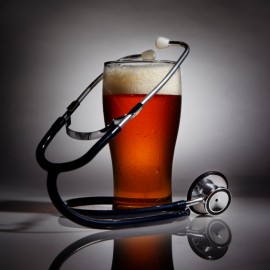Topics
Alcoholism in the Hospital
The medical professions have been dealing with alcoholism and alcoholics for thousands of years, and this experience has led to some pretty hard and fast views on the subject.
Topics: alcoholism, detoxification, disease, health care, recognizing addiction, signs and symptoms
My husband quit drinking, but he’s still not himself.
Topics: addiction and the brain, disease, promoting recovery
Celebrity Addiction
Doesn’t seem to matter much whether fame is rooted in music, film, TV, sports, politics — there’s this sense of unreality to all of it.
Topics: celebrity, enabling and provoking, relapse
Prescription Drug Abuse Epidemic pt 1
What we’re seeing now is an unintended consequence of a change in prescribing. Which doesn’t mean that the medical professions weren’t warned about the possibility, however — they were.
Topics: opioids, prescription medications
Deterring Drunk Driving: Thoughts on Designing a System
If estimates are correct that a typical offender has driven under the influence between 60 and 100 times prior to first arrest, it’s clear the actual problem is far, far greater than arrests alone can document.
Topics: criminal courts, DUI/DWI, legal problems, policy
Nature or Nurture?
Think of the genetic component as an inherited vulnerability — a predisposition. The more vulnerable you are, the better your chances of becoming an alcoholic.
Topics: alcoholism, disease
Tragic and Costly: DUI/DWI
Public perceptions of how we should and shouldn’t treat offenders often result in less than optimal solutions both for the addict/alcoholic and for the victims and the larger society that must pay.
Topics: criminal courts, DUI/DWI, legal problems
Why Addicted People Manipulate
Takes a while to become really good at it, but most do. Addicts are not always great manipulators — that would be somebody so skilled you never realized you were being manipulated — but they’re bold, persistent, and creative when it comes to getting what they want
Topics: counseling skills, resistance manipulation ambivalence
Can We Make Patient Education Work?
Use examples. It’s hard for someone with alcoholism to grasp the idea that he or she can’t go back to drinking at some future point – after a year of abstinence, for instance. But the old saw that a pickle can’t go back to being a cucumber – that people seem to understand.
Topics: client engagement and motivation, patient education, self diagnosis

















